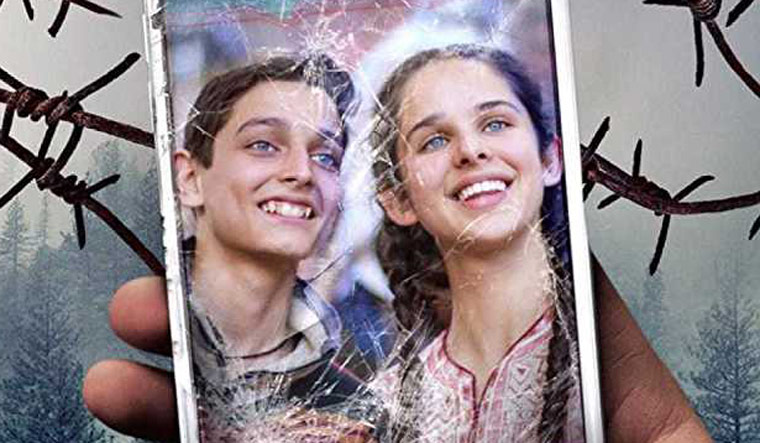“We wiped out the history of our people with our own hands,” says one of the characters in No Fathers In Kashmir. He is the father (played by Kulbhushan Kharbanda) of a man who has been missing for years. When his 16-year-old granddaughter, Noor (Zara Webb), comes to Kashmir from the UK with her mother, Zainab (Natasha Mago), and wishes to see one of her father’s pictures, who she had never seen, the old man has nothing to show. His photos have been burned. All trace of his existence has been destroyed. The troubled state has ensured that his life gets enmeshed in the turmoil and he is susceptible to terrorism – irrespective of his education and the fact that he was away from the state, working in the UK.
In another scene in the film, somewhere in the middle when the plot is still evolving, the young male protagonist—16-year-old Majid (Shivam Vij)—expresses his desire to become a militant when he grows up. He wants to fight for freedom. He too has never known his father like his new friend, Noor. He does not become averse to the idea of turning to militancy although his life was directly impacted by the unrest in the state. “There is a difference between being a militant and a terrorist,” he proclaims though. “Militants fight for freedom, terrorists are criminals,” he says. “But don’t they both carry guns,” Noor asks.
READ MORE: Hamid review: A poignant tale of love, longing and loss
Director Ashvin Kumar, who has explored the life and times of Kashmir since 2009, with documentaries Inshallah, Kashmir and Inshallah Football is there again. He, however, does not lay bare the realities straightway. He builds his story around these two teenagers – Noor and Majid – both united by almost the same tragedy and share almost the same emotions. The difference is just that even after belonging to the state, she is an outsider, while he is an insider.
Also Read
- 'Love Sex Aur Dhokha 2' review: Dibakar Banerjee simulates three virtual worlds, but it's not clear to what end
- 'Do Aur Do Pyaar' review: Marriages are not made in heaven
- 'Maidaan' review: The film honours Rahim saab, his legacy, India’s golden not-so-distant past
- 'Patna Shuklla' review: Raveena Tandon carries a heavy role and a middling film with graceful lightness
- 'Swatantrya Veer Savarkar' review: Randeep Hooda is the only saving grace
Noor, like any other millennial, is amused and transfixed by everything that she sees around her, clicking pictures for her social media profile. Before her journey to her hometown, she is asked by a friend to click photos of terrorists. “Is it so easy to find them,” she asks the friend. But it seems it isn’t so difficult, either. Majid poses for her with an Armyman’s gun. As their relationship evolves, more truth about the state is uncovered. They venture out to areas that civilians are not supposed to access.
In the process, her lens that was trained to the beauty that she found in her broken home state, starts turning grim. From the photos of shikaras, she moves on to discovering secret lands – where missing bodies have been buried. And that is the most interesting arc in the film, especially elevated by the cinematography by Jean Marc Selva and Jean Marie Delorme.
No Fathers In Kashmir isn’t the perfect feature film. It has its flaws. For instance, a character played by Kumar (Arshid Lone), who has suffered at the hands of both the military and terrorists, doesn’t know which side he is on. His character is confusing, club it with his one-note performance and it doesn’t leave a mark. But may be it’s the imperfections that make it fitting to capture the blemishes of the state – it’s struggle, the dichotomies and the constant fight to be free to become that perfect civil society one day.
Film: No Fathers In Kashmir
Director: Ashvin Kumar
Starring: Zara Webb, Shivam Vij
Rating: 3/5



